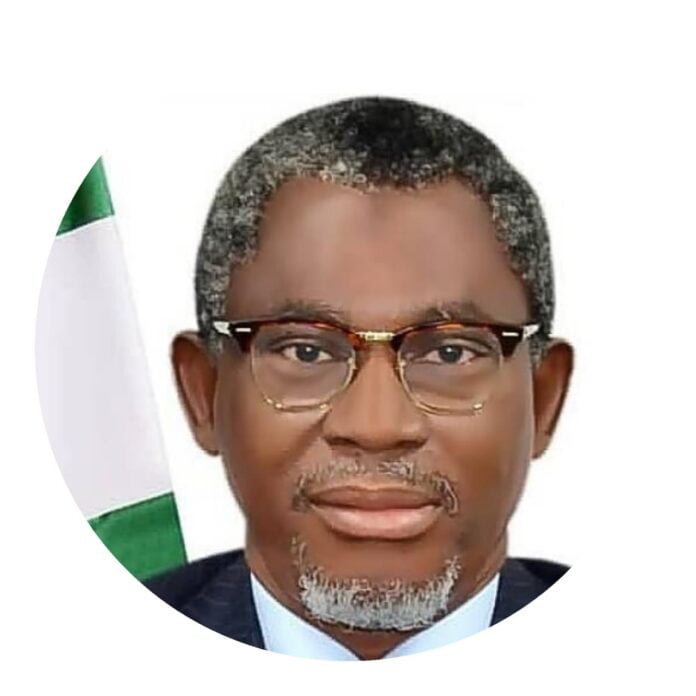FGN tasks geoscientists, others on mining dev’t for economic diversification
Story from ADAH Abah, Abuja
The Federal Government of Nigeria (FGN) has urged Geoscientists and other stakeholders to support in their various ways government’s policy and efforts in diversifying the nation’s economy by using the mineral sector as a key driver.
Minister of Mines and Steel Development, Architect Olamilekan Adegbite, made the appeal while delivering the keynote address at the 1st International Conference and Exhibitions of the Nigerian Society of Economic Geologists (NSEG) in Abuja.
The Minister said, “The geoscientist plays such an invaluable role, which cannot be overstated in driving mineral exploration activities leading to discoveries of minerals and preparation of definitive feasibility reports on the viability of mineral reserves. The works of the geoscientists produce the treasured mineral raw materials that form the backbone of the modern-day industrial revolution.
READ ALSO: Nigerian mining cadastre office and the challenges of revenue drive, by Abah Adah
“I wish to conclude this address by calling on all geoscientists and stakeholders to support government’s policy and efforts in diversifying the nation’s economy, using the mineral sector as one of the key drivers.
“The outcome of such efforts will benefit all of us and the generation of Nigerians yet unborn.”
Adegbite also reassured the audience of stakeholders and the general public of the government’s commitment and continuous support for the growth and development of the minerals sector through efforts to generate geoscience data to de-risk and make the sector more attractive to genuine investors.
“Government will also continue to support Research and Development (R & D) endeavours tailored towards addressing real-time mineral sector development challenges,” the Minister added.
Architect Adegbite noted that the theme of the maiden congress and exhibition “is timely and strategic given the compelling urgency to diversify our economy for the prosperity of the nation”.
Speaking further, the Minister explained that the theme sought to define the roles of the critical stakeholders in developing the minerals sector, key amongst which are the government, private sector, and the professionals driving the mineral sector development process.
“Undeniably, Nigeria’s minerals sector offers robust economic potential for diversification of the nation’s economy yet the country and indeed, many other African countries have continued to suffer under-utilisation of their mineral resources.
“This has accounted for the slow phase of socio-economic development in Nigeria and many African countries. Our country is known to operate a mono-economy where oil accounts for almost 90% of the foreign exchange earnings. This present administration found this appalling and described the situation as unacceptable and promised to urgently find solutions to redress the challenges,” Adegbite said.
He pointed out that as part of its effort to reposition the solid minerals sector, the Ministry of Mines and Steel Development, in early 2016, identified insufficient geoscientific data and geological knowledge, weak implementation and enforcement of mining law and regulations, and the poorly regulated and informal artisans and small-scale mining sub-sector as critical binding constraints to the mining sector’s development.
“This propelled the Ministry to immediately begin the process of preparing a detailed sector Roadmap aimed at advancing certain strategic objectives, which would eventually result in the: (a) creation of a globally
competitive sector capable of contributing to wealth creation; (b) provision of jobs and advance social and human security by focusing on using its mining assets to drive domestic industrialisation; and (C) migration to winning in global markets through a value chained-based
growth plan.
In his welcome address earlier, the President of the Nigerian Society of Economic Geologists (NSEG), Dr Abdulrasaq Abubakar Garba, at the opening ceremony of the maiden Annual International Conference which was held on 26th, June to end on 29th, June 2022, said “the Nigerian Society of Economic Geologists (NSEG) started off as the “Petrology, Structural Geology and Geochemistry” Specialist Group of the Nigerian Mining and Geosciences Society (NMGS).
“However, at the 2016 Annual International Conference of NMGS held in Ilorin, Kwara State, an Ad-hoc Committee was set up for this Specialist Group to better coordinate its activities which eventually led to the approval for the transformation of the group into the present “Nigerian Society of Economic Geologists” (NSEG) at the NMGS Enugu 2019 Conference.
“This approval was all the young NSEG required to formally launch itself to the public and hence the inaugural AGM/workshop of NSEG was held in Abuja on 10th December 2019, where the current executive council was elected to pilot the affairs of NSEG for the next two years. The first AGM of our Society also witnessed the appointment of a 5-member board of trustees (BOT) and the promulgation of a brand-new constitution for the society”.
For clarity purpose, he defined Economic Geology as a subdiscipline of the geosciences that focuses on earth materials that can be used for economic or industrial development purposes. Often, much of the purpose of the study is to identify new ore deposits for excavation as well as to understand how ore deposits are generated and localized within the earth’s crust.
“This gathering is therefore expected to harvest the best knowledge to aggregate and articulate our thought on the way forward for our dear country,’ he said.
The NGSA boss also informed the crowd of stakeholders that the feat achieved in NIMEP was largely dependent on the efforts of geologists.
“The success of the MMSD National Integrated Mineral Exploration Programme (NIMEP) executed through the Nigerian Geological Survey Agency and other collaborating agencies is mainly attributable to the role played by geoscientists from its conceptualisation, design, and execution,” he said.


